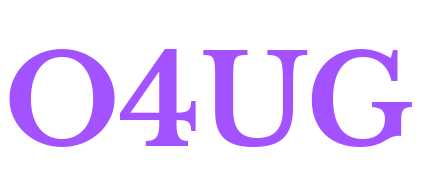Many people around the world aspire to live and work in the Europe due to its highly developed and stable economies, abundant job opportunities, and favorable working conditions. However, securing a job in the EU can be challenging, despite the apparent low unemployment rate. The EU faces a skills shortage, leading to unfilled vacancies in various sectors.
Job Market in Europe
Europe is home to a dynamic job market, with a wide range of industries and sectors experiencing growth and expansion. From technology and finance to healthcare and hospitality, there are job vacancies available for various skill sets and backgrounds. Some of the key cities known for their job opportunities include London, Paris, Berlin, Amsterdam, and Stockholm. However, opportunities are not limited to these cities alone, as many smaller cities and towns across Europe also offer promising job prospects.
Exploring Open Jobs
To find jobs in Europe, you can explore various job search websites and platforms that cater to job seekers looking for opportunities in European countries. Some of the popular websites where you can find job listings for Europe include:
- LinkedIn: LinkedIn is a professional networking platform that also serves as a job search portal. You can create a profile, specify your job preferences, and search for job openings in European countries. Many companies in Europe use LinkedIn to post their job vacancies.
- European Job Portals: There are also specialized job portals dedicated to listing jobs specifically in European countries or regions. Websites like Eurojobs, Europa.eu (European Job Mobility Portal), and EuroBrussels focus on connecting candidates with employers in Europe.
- Company Websites: Many multinational companies with operations in Europe post their job openings directly on their official websites. If there are specific companies you are interested in working for, regularly checking their career pages can help you find relevant job opportunities.
- Networking: Networking both online and offline can also be an effective way to discover hidden job opportunities in Europe. Attend industry events, connect with professionals on LinkedIn, and engage with relevant communities to expand your network and learn about potential openings.
Application
Once you’ve found a job opening that aligns with your career goals, it’s time to prepare your application. The application process may vary depending on the company or organization, but here are some general steps to follow:
-
Prepare Your Resume/CV: Tailor your resume or curriculum vitae (CV) to highlight your relevant skills, qualifications, and experience. Customize it for each job application, emphasizing the aspects that make you a suitable candidate for the specific role.
MORE JOBS ( July 2024)- UK embassy recruitment : Open Jobs/Online application
- SITA Recruitment : Open Jobs/Vacancies at State Information Technology Agency
- Standard Bank recruitment : Open Jobs/Online application
- Coca-Cola recruitment : Open Jobs/Online application
- Accounting vacancies & Recruitment : Open Jobs/Application
-
Craft a Compelling Cover Letter: Alongside your resume/CV, write a well-crafted cover letter that showcases your motivation, enthusiasm, and the value you can bring to the organization. Address the key requirements mentioned in the job description and explain why you are the ideal candidate for the position.
-
Submit Your Application Online: Most companies and organizations prefer online applications. Visit the company’s official website or the job portal where you found the job listing. Follow the instructions provided to submit your application, which typically involves uploading your resume/CV, cover letter, and sometimes additional documents like certifications or references.
-
Stay Updated: After submitting your application, keep an eye on your email for any communication from the hiring team. They may reach out to schedule interviews or request further information. Ensure that your contact information is up to date and regularly check your spam folder to avoid missing any important messages.
-
Interviews and Assessments: If your application is shortlisted, you may be invited for an interview. Depending on the company, this could be conducted in person, over the phone, or via video conference. Prepare for the interview by researching the company, practicing common interview questions, and showcasing your skills and experience.
-
Offer and Negotiation: If you successfully navigate the interview process and the company decides to extend an offer, congratulations! Take the time to carefully evaluate the offer, including salary, benefits, and other terms. If needed, negotiate aspects of the offer to ensure it aligns with your expectations and requirements
It is crucial to beware of scams that may require payment for job applications or promise employment in exchange for money. Such fraudulent schemes prey on individuals eager to work in Europe but are typically too good to be true. Once a job offer is secured, applicants need to navigate the visa application process specific to the country where their employer is located.
